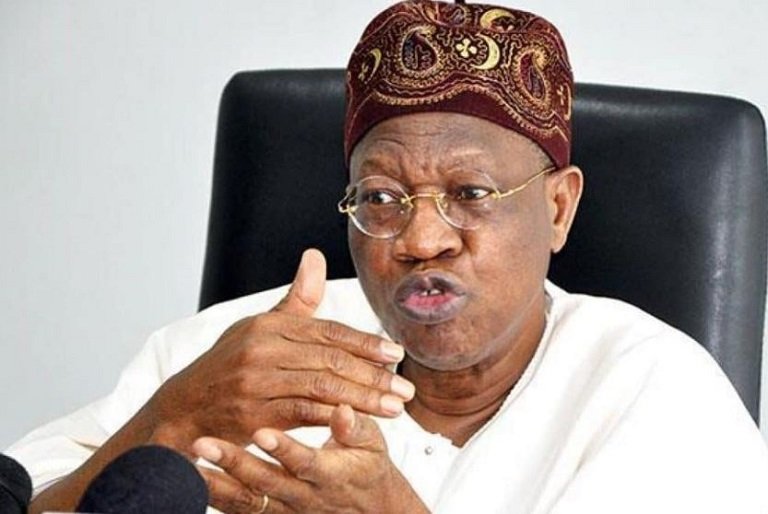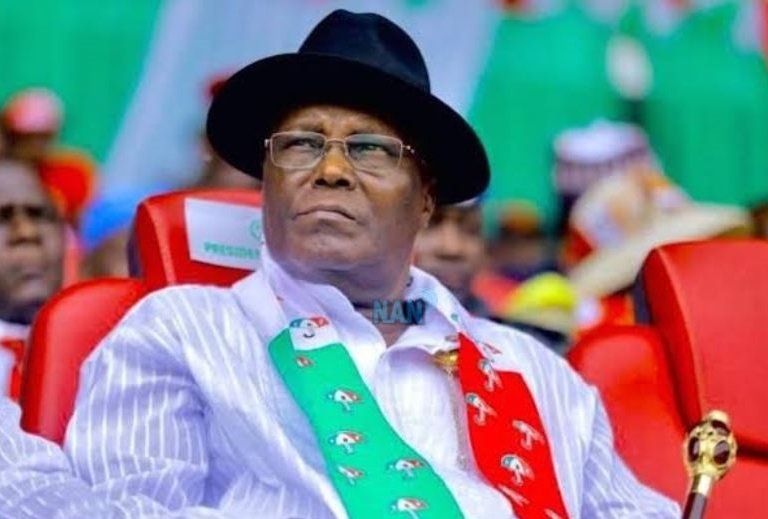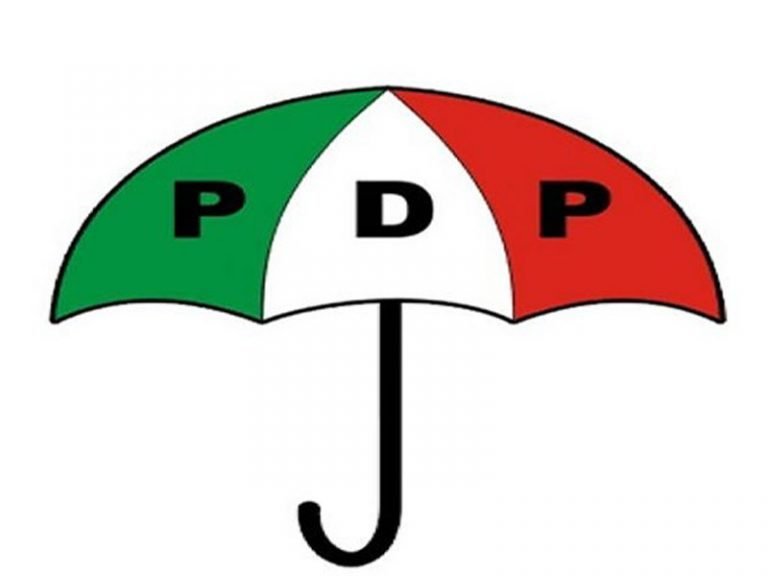The Federal High Court sitting in Lagos State has ordered a former Minister of Information and Culture, Lai Mohammed, and the Ministry of Information to disclose the details of the agreement between the Federal Government and X (formerly Twitter) to assess whether the agreement complies with the exercise of Nigerians’ human rights online in favour of the Socio-Economic Rights and Accountability Project (SERAP).
According to a statement issued by the Socio-Economic Rights and Accountability Project’s Deputy Director, Kolawole Oluwadare, on Sunday, the judgment was delivered in May 2024 by Justice Nnamdi Dimgba following a Freedom of Information suit number: FHC/L/CS/238/2022, filed by the organisation.
The Certified True Copy of the judgment was said to have been obtained last Friday.
In his judgment, Justice Dimgba held that, “The former minister and the Ministry of Information are directed and compelled to provide a copy of the agreement between the Nigerian government and Twitter to SERAP solely to ascertain its impact on the protection of fundamental human rights of Nigerians.”
Justice Dimgba added that, “Disclosing the details of the agreement between the Nigerian government and Twitter is in the public interest and does not affect Twitter’s business interest as a third party. It is also not prejudicial to Nigeria’s sovereignty and national security.”
The judge also stated that, “The agreement between the Nigerian government and Twitter must still be disclosed irrespective of the harm to Twitter if it would be in the public interest to make sure disclosure.”
The judge dismissed the objections raised by the minister’s counsel and upheld SERAP’s arguments. Consequently, the court entered judgment in favour of SERAP against the minister.
Justice Dimgba further said, “The minister has failed to prove that the President has followed the due process of law to designate Twitter as a Critical National Information Infrastructure upon the National Security Adviser’s recommendation and issued an order in the Federal Gazette in that regard.”
Justice Dimgba’s judgment, dated May 28, 2024, read in part: “Therefore, I hold that the disclosure of the Twitter agreement is not prejudicial to Nigeria’s sovereignty and national security or protected by the Official Secrets Act, as the minister has failed to prove the same.
“The first question that needs to be answered is how the need to disclose the agreement is outweighed by the importance of protecting the commercial interests of the third party, Twitter.
“The former minister has unequivocally argued that the disclosure could harm Twitter’s business interests in other jurisdictions, potentially with Twitter’s contractual negotiations.
“However, this defence is hypothetical and does not point to the specific business or contractual interests of Twitter that could be affected.”
He said the details of the agreement as requested by SERAP will not interfere with the commercial interests and trade secrets of Twitter or lead to financial losses to it even as the former minister has failed to prove the same.
“Besides, Section 15(4) of the Freedom of Information Act envisages only real and not hypothetical financial loss or gain to or prejudice to, the competitive position of or interference with contractual or other negotiation of a third party like Twitter which could be affected by the disclosure.
“No evidence was placed before this court pointing to the fact that Twitter has an agreement with another country as a precondition for its operation in such jurisdiction as obtainable in Nigeria.
“I am of the view that SERAP has a legitimate reason to wish to be availed of the agreement, which is to understand how the agreement affects them and other Nigerians as far as the protection of the human rights of Nigerians are concerned,” he added.
Justice Dimgba pointed out that another controversy is whether the need to disclose the agreement for public interest is subject to the need to protect national sovereignty, as argued by the minister.
“National sovereignty depending on context is synonymous with national security.
“In most cases, the need for national security outweighs public interest, including protection of fundamental human rights. In this case, however, I am of the view that the reason for the refusal by the minister to disclose the agreement does not come within the need to protect national security and sovereignty.
“The minister’s defence is predicated on the Cybercrimes (Prohibition and Prevention Act) 2015 but has failed to prove how the Act relates to the Twitter agreement other than mentioning the same,” he added.
He noted that more than merely linking SERAP’s request for the agreement to ‘critical national information infrastructure’ in Section 3 of the Cybercrime (Prevention and Prohibition) Act, nothing more is said about its relevance and how it supports non-disclosure of the Twitter agreement.
“As such, the Cybercrime Act cannot apply to this case, and the protection that would have availed the minister is exempted. The minister also failed to prove how SERAP’s request for the agreement between the Nigerian Government and Twitter came within the protection of the Official Secrets Act.
“SERAP’s lawsuit falls within the framework of Section 20 of the Freedom of Information Act.
“The minister is directed and compelled to provide a copy of the agreement requested to SERAP to enable the organization to study the same and come to an assessment of whether the agreement incorporates the provisions of Chapter IV of the Nigerian Constitution 1999 [as amended] on fundamental human rights and Nigeria’s international human rights obligations,” the judge held.
He averred that it is clear that Twitter was from the beginning ostensibly suspended from operating in Nigeria’s cyberspace solely to protect the country’s corporate existence, stressing that the same ban was lifted after Twitter reached agreement with the Nigerian Government on some terms and conditions for its operation in Nigeria’s cyberspace, noting that the former minister has not denied the existence of such an agreement.
He added, “SERAP’s request does not involve disclosing personal information but relates to an agreement between the government and an international company that plays in the social media and public data space.
“By paragraph 13 of SERAP’s affidavit evidence, the organization requested a copy of the agreement to know whether it complies with Nigeria’s domestic fundamental human rights laws and international treaties to which the country is a state party.
“SERAP’s request seeks clarification on the scope and enforcement of the agreement to ensure it complies with fundamental human rights laws. For emphasis, matters of human rights enforcement fall within the ambit of public interest, as can be gleaned from a holistic understanding of Section 15(4) of the Freedom of Information Act.”
He further stated that a public institution may grant a request for information on human rights protection grounds within Section 15(4) of the FOI Act, provided that the importance of granting the same outweighs the commercial interests of the third party.
“Particularly, Order 1 Rule 2 of the Fundamental Rights Enforcement Procedure Rules 2009 provides that public interest ‘includes the interest of Nigerian society or any segment of it in promoting human rights and advancing human rights law.
“Paragraph 3(1)(3)(d) of the Guidelines on the Implementation of the Freedom of Information Act Revised recognizes the following factor as constituting public interest ‘allowing individuals and companies to understand decisions made by authorities affecting their lives, and in some cases, assisting individuals in challenging those,” he added.
Reacting to the judgment as quoted by SERAP, Nigerian lawyer and human rights activist, Femi Falana, said, “We commend Justice Dimgba for this landmark judgment. This is a judicial confirmation of Nigerians’ rights to freedom of expression, and access to information online. We call on the government of President Bola Tinubu to immediately implement the judgment.”
SERAP Deputy Director, Oluwadare, said, “This ground-breaking judgment is a victory for freedom of expression and privacy online, which is central to achieving individual freedom and to developing democracy.

“The onus is now on President Bola Tinubu to immediately comply with the court’s orders. We commend Justice Dimgba for his courage and wisdom. SERAP will do everything within its power to secure the full and effective enforcement of this important judgment.”
In the letter dated July 13, 2024 sent to President Bola Tinubu on the judgment, and signed by SERAP deputy director, Oluwadare, the organisation said, “We urge you to demonstrate your expressed commitment to the rule of law by immediately obeying and respecting the judgment of the Court.”

SERAP’s letter, read in part: “We urge you to direct the Ministry of Information and Culture and the office of the Attorney General of the Federation to immediately disclose the details of the Twitter agreement, as ordered by the court.
“The immediate enforcement and implementation of the judgment by your government will be a victory for the rule of law, freedom of expression including digital and data rights in Nigeria.
“SERAP trusts that you will see compliance with this judgment as a central aspect of the rule of law; an essential stepping stone to constructing a basic institutional framework for legality and constitutionality. We therefore look forward to your positive response and action on the judgment.”
The suit was filed against the former minister.
The suit followed the Nigerian Government’s statement on January 13, 2022 after lifting the suspension of Twitter operations in Nigeria, to the effect that, “Twitter has agreed to act with a respectful acknowledgement of Nigerian laws and the national culture and history.”
The Nigerian government suspended Twitter on June 4, 2021 after it removed a post from former President Muhammadu Buhari.

The former president was joined in the suit as co-respondent but the court gave the orders against the minister.











